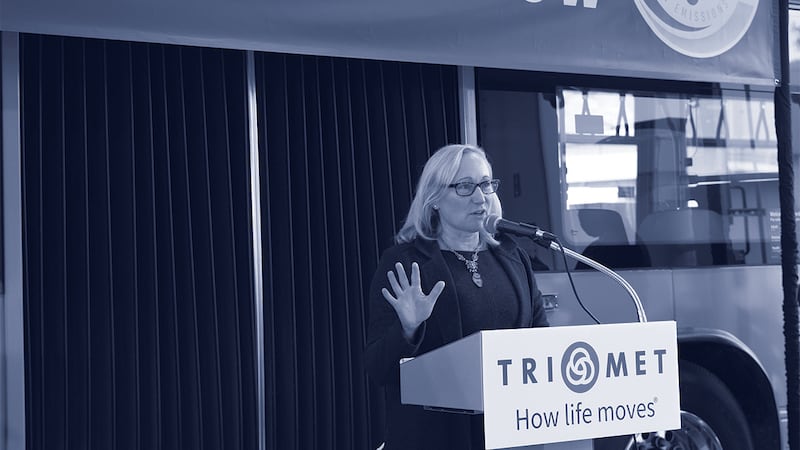“What needs to happen is the mayor really needs to consider stepping away from this commission form of government, now. He has the ability to do an emergency order, take the commission assignments away, take his own assignments away, and get a city manager now, and prove the concept that we can do better.” —Metro Council President Lynn Peterson
In a March 17 meeting of the Portland Executives Association, Lynn Peterson made a remarkable suggestion: If Mayor Ted Wheeler wants Portland’s form of government to change, he should just go ahead and change it.
While not a household name, the PEA is one of several business guilds whose members are deeply disgruntled with crime, homeless camping, the appearance of downtown—where its CEO membership gathers for lunch—and the seeming inability of the Portland City Council to move quickly on any decision.
For years, public policy wonks have argued that the lethargy at City Hall isn’t due to any one official, but to a structural flaw.
Portland is the only large city in the nation that still uses a commission form of government, a system that often results in molasses-paced action by bureaus under the control of one of five city commissioners who guard their fiefdoms from the threat of new ideas.
This fall, Portlanders will have a once-in-a-decade chance to change the city’s form of government. The Charter Review Commission, a 20-member committee, is currently working on submitting recommendations to the City Attorney’s Office, which will draft initiatives for November’s ballot.
A recent poll shows strong support for switching to a government that does not task City Council members with managing individual bureaus but instead gives administrative duties to either a city manager or the mayor.
In audio obtained by WW, Peterson told the executives that November is a long way off: “All of that seems very far away, and too far away during a crisis.”
She argued that Wheeler should use his emergency powers to scrap the commission form of government and bring in a city manager, immediately. By doing so, Peterson said, Wheeler could demonstrate to voters that they would be better off making such a change permanent in the fall.
“The vast majority of citizens of this city want to see reform. And the sooner the better,” Peterson tells WW. “So all this would be doing would be accelerating one portion of the reform that the commission is looking at.”
In some ways, Peterson’s idea builds on what Wheeler is already doing. As WW reported this month (“Something Borrowed,” March 9), the mayor has used executive orders to bypass his fellow commissioners on homeless camping restrictions and shelter creation.
Mayoral spokesman Cody Bowman tells WW, “The Mayor fully supports the work of the Charter Review Commission and looks forward to hearing their recommendation.”
